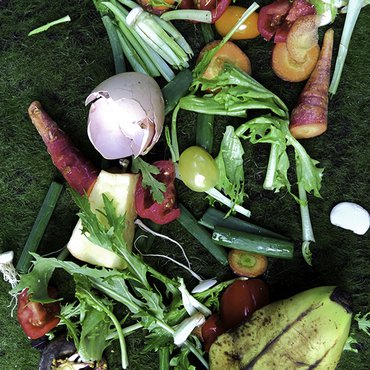Food waste has become an increasingly important topic for food retailers and consumers, and many companies large and small have implemented practices that seek to minimize the amount of food that ends up in landfills. For retailers that have prepared-food departments, some foods approaching expiration can be diverted for use as ingredients. Many retailers also donate product to local organizations, or send it to be composted.
SFA News Daily recently spoke with three retailers about how they manage their food waste. Following is what they said:
Jake Tavello, vice president of stores, Stew Leonard’s, Norwalk, Connecticut
Stew Leonard’s food waste is really at a minimum. Since my grandfather opened Stew Leonard’s in 1969, we’ve always had a strong production planning system in place, and we source locally and direct to our stores. Our experienced buyers are able to increase the frequency with which we receive fresh product, in some cases on a daily basis, which helps us get fresh product directly from the truck and onto the store floor. We don’t have product sitting in a backroom or warehouse like bigger retailers.
Each of my family’s seven food stores also employs chefs backed by talented culinary teams to prepare fresh food with products sourced directly from our produce, meat, and fish departments. Additionally, Stew Leonard’s gives away coffee grinds to customers for composting and gardening, we donate day-old baked goods to local charities, and we donate unsaleable produce to local farmers to help feed their animals.
Mylese Tucker, owner, Nature’s Cupboard, Michigan City, Indiana
Any usable food that’s culled from the produce department we use in our juice bar and deli, and anything that’s unusable, we compost, and we have farmers who come pick up our compost.
For food that is not sold by the sell-bay date, we give it away to customers and we give it away to staff, with the understanding that they will want to eat it right away. We don’t want to throw anything away; it’s too painful.
We also have a local shelter that will take our outdated non-perishables. We call them and they pick it up the next day. It can be tricky because there are some places that won’t take anything that doesn’t have a good sell-by date, but we are fortunate that we do have places in town that will take it.
Steven Rosenberg, founder and chief eating officer, Liberty Heights Fresh, Salt Lake City, Utah
Food waste is an ongoing and perplexing challenge, and it’s especially difficult when you are committed to organically grown products.
We’re lucky in North Salt Lake that we have an anaerobic food waste digester, which can take a lot of our food waste and turn it into energy in the form of natural gas. But food waste is a major concern, and every day I am opening those bins to see what could have been saved.
In our kitchen, we try to do whatever we can, like taking the root vegetable peelings and using them in soup stocks. There are a lot of things we can do because we have a kitchen here — we’re able to take a lot of foods that would otherwise go to waste and use them in our kitchen.
We also distribute food to the elderly in the community, and things like bread get redistributed when they are no longer fresh.
Related: Food Suppliers Commit to Reducing Food Waste; Consumer Goods Forum Launches Food Waste Initiative.

